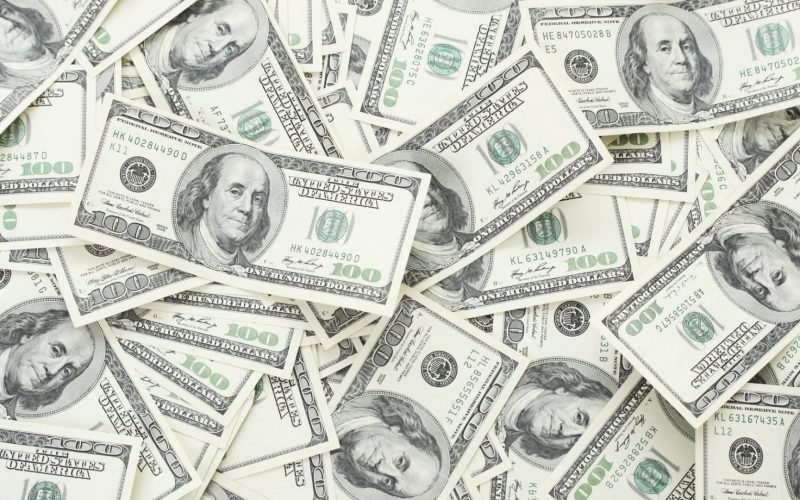While becoming a millionaire sounds doable with hard work and some luck, progressing to the next level is frequently regarded as a pipe dream. But what if it was feasible? If you’ve ever wondered how to become a billionaire, this article will give you several options. While becoming a billionaire may still seem out of reach, these strategies are all doable, so keep reading!
What Qualifies Someone as a Billionaire?
Naturally, becoming a billionaire requires a large sum of money — at the very least, $1 billion. Meanwhile, the average billionaire has a net worth of $3.1 billion. To put this in context, the average American net worth is $97,300. So, how do these individuals amass such vast fortunes?
Unless you have the good fortune to have inherited that wealth or have won the lottery (in which case you are unlikely to be reading this article), let’s look at a few options for getting to that coveted amount and beyond.
Who Is a Billionaire?
A billionaire is defined as someone with a net worth of $1 billion or more. In other words, if you can sell all of your assets for cash, pay off all of your debts, and still have $1 billion in the bank, you are a billionaire. Having $1 billion in assets and $900 million in debt does not make you a billionaire, but you and your family are unlikely to be concerned about future college expenses or retirement.
A billion dollars, like any other large number, can be difficult to grasp. “If you can count your money, you don’t have a billion dollars,” said J. Paul Getty, who was named the richest living American by Fortune magazine in 1957.
Here are some examples to help you visualize the concept of a billion dollars.
- For three people working a standard 40-hour workweek, counting to $1 billion at a rate of one dollar bill per second would be a lifetime career. If you hired them at the age of 21, they would finish the task more than 44 years later, assuming they worked eight hours every day and never took a sick day. The counted $1 bills would fill a football field-sized building to a height of 8.3 feet and weigh more than 1,100 tons.
A billion dollars is equivalent to the following in purchasing power:
- 9.174 million Disney theme park admissions per day (25,134 years worth of daily visits, or pay for 1,000 friends to go to a Disney park daily for 25 years.)
- You could drive a different luxury car every day for nearly 74 years if you owned 27,000 Cadillac CTS luxury sedans. Alternatively, if you’re the thrifty type, you could buy a new Honda Civic every day for the next 128 years.
- More than 66 million hand-tossed large Pizza Hut Pepperoni Lovers pizzas or 167 million Big Mac meals with french fries and a soda.
- More than 1,739,000 rounds are to be played at Pebble Beach Golf Links in California, with enough tee times for you and 99 of your closest friends to play every day for the next 47 years at this iconic and very expensive golf resort.
While some billionaires live extravagantly, owning yachts, and exotic cars, flying in private jets, and living in multiple mansions around the world, others are surprisingly frugal. Warren Buffett, who will be ranked 10th on the Forbes list in November 2021, still lives in the same Omaha, Nebraska, home he bought 50 years ago for just over $30,000. According to a Forbes interview, David Green, the founder, and CEO of Hobby Lobby prefers to fly coach rather than in a private plane.
Billionaires’ Common Characteristics and Experiences
While billionaires are all unique individuals, a look at the Forbes list reveals that many have similar experiences:
#1. It takes time to become a billionaire.
Forbes billionaires are typically 63 years old. There are some notable exceptions to the rule as younger people join the ranks, owing to new products and services made possible by technological advances.
A few billionaires under the age of 30 are DoorDash founders Andy Fang (number 1,549) and Stanley Tang (number 1,526), as well as Luminar Technologies founder Austin Russell (number 1,991). And 37-year-old Mark Zuckerberg (number 7) is worth an estimated $121 billion in Facebook stock.
#2. Education is beneficial, but it is not required.
Many, but not all, of Forbes’ billionaires are college graduates. Surprisingly, many of the top billionaires lack a college education, including Bill Gates (Microsoft) and Mark Zuckerberg (both Harvard University dropouts). Michael Dell (Dell Inc., the University of Texas at Austin) and Larry Ellison (Oracle Corporation, University of Chicago) also did not complete their undergraduate degrees.
#3. Family money is beneficial, but it is not required.
According to Statista, only 207 out of 2,792 billionaires considered themselves to have inherited their wealth as of 2020. More than 72% of them thought they were “self-made” billionaires. Others attributed their success to a combination of genetics and hard work.
One-quarter inherited family wealth and went on to make fortunes. Carlos Slim Helu, also known as “the Warren Buffett of Mexico” (16th), the Koch family, Mars family members, and Abigail Johnson of Fidelity Investments are among them (number 85).
About 15% are billionaires solely through inheritance (Sam Walton’s legacy accounts for many on the Forbes list).
#4. Marriage is a mixed bag for billionaires.
Marriage does not appear to predict wealth, and wealth does not guarantee a happy marriage. 46 of the 50 wealthiest Americans on the Forbes billionaire list had been married at some point as of May 2021. Thirty-three of the fifty were married, including those who had previously been divorced or widowed.
Several of the world’s wealthiest people have had multiple marriages, including Oracle’s Larry Ellison, who has four previous wives, and Revlon’s Ronald Perelman, who has five.
Even relatively long billionaire marriages, such as those of Bill Gates and Amazon founder Jeff Bezos, which ended after 27 and 26 years, respectively, are not immune to divorce. Nike’s Phil Knight (number 25) on the other hand, has been married to the same woman since 1968.
#5. Careers in technology, finance, or real estate can be extremely lucrative.
Many billionaires’ wealth is derived from the development of disruptive technology and its commercialization through a public offering of their company. Microsoft (Gates, Paul Allen, and Steve Ballmer), Google (Larry Page, Sergey Brin, and Eric Schmidt), Amazon.com (Bezos), and Facebook (Zuckerberg) are just a few examples of companies made possible solely by new technology.
Other billionaires invest directly in the financial market, combining their own funds with capital investors to achieve extraordinary returns. Warren Buffett is perhaps the most well-known Wall Street investor, but hedge fund managers like George Soros (number 288), Ray Dalio (number 88), and James Simons (number 68) are among the 20% of billionaires who call Wall Street home.
A third group, real estate magnates, amassed fortunes by owning and developing real estate, using what many refer to as the classic leverage system of a small down payment and a large mortgage. Donald Bren (number 132), Donald Trump (number 1,325), Jeff Sutton (number 1,064), and David Walentas are among those in this group (number 1,444).
What job makes you a billionaire?
- Investment banker.
- Author.
- Athlete.
- Entrepreneur.
- Lawyer.
- Real estate developer.
- Surgeon.
- Inventor.
Who is the youngest billionaire?
Alexandr Wang was a math prodigy who enjoyed competing in national math and coding competitions as a child.
How To Become a Billionaire (Best Tips)
Achieving billionaire status requires more than just hard work and determination, though these are important factors. Many of the ultra-wealthy, including Buffett, Bezos, and Zuckerberg, admit that luck played a role in their success.
In addition to crediting their wealth to good fortune and family ties, many of the world’s wealthiest people would probably advise aspiring billionaires to do the following:
#1. Purchase stocks and mutual funds.
Many people become billionaires by investing, which allows them to reap massive rewards if they know what they’re doing.
The disadvantage of this strategy is that when you invest in stocks and mutual funds, you are always taking a risk. If the stock market crashes, you could lose all of your money. As a result, it is critical to conduct research, understand the risks, and, ideally, diversify your portfolio to include both safe haven and riskier assets.
#2. Start your own company.
While not the quickest way to become a billionaire, starting your own business and making it successful is a more stable and less volatile strategy than investing. While many factors influence success, one of the most important is having a clear vision for your business.
This entails knowing what you want your company to accomplish and the steps necessary to get there. It is also critical to have a niche market in which you can excel. You’ll be more likely to stand out from the crowd if you cater to a specific need or desire.
#3. Purchase the high-value real estate and rent it out.
If you’re wondering how to become a real estate billionaire, the answer is to buy a property in a high-value area and make money by renting it out. The rental income can quickly add up, making this a profitable investment. Furthermore, the property’s value is likely to rise over time, providing an even greater return on investment.
The disadvantages of this strategy include the need for upfront capital and the risk that the property will lose value over time. Still, if the property is carefully chosen and well-managed, it can be a profitable investment.
#4. Create a high-demand product or service with little competition.
Creating a high-demand, low-competition product or service is a surefire way to become a billionaire. Naturally, your education, experience, and inventiveness will play a role in this. If you are successful in coming up with such an idea, it is critical that you protect your position by developing a loyal customer base and consistently delivering excellence.
You could be well on your way to becoming a billionaire if you have a product or service that is in high demand and has little competition.
#5. Make possibilities
Anyone who wants to become a billionaire by creating their own opportunities should study hard, save frequently, pay off debts as soon as possible, and have a short-term plan that includes investing in themselves and their education. When it comes to education, it’s impossible not to wonder what to study to become a billionaire.
According to studies, many billionaires have studied medicine, law, technology, and entrepreneurship.
While there is no guarantee that these steps will result in becoming wealthy, they will undoubtedly increase your chances of becoming a billionaire. Self-made billionaires are often people who have taken the time to learn about a variety of topics and have developed a keen understanding of how to create value.
#6. Find a job that pays well and is stable.
It is not easy to become a billionaire, but it is possible with the right job. But what jobs turn you into a billionaire? There are several alternatives. Jobs in the medical field, for example, such as surgeons and doctors, have the potential to pay well. These positions usually necessitate years of experience and training.
Another option is to work in technology. Companies in this industry are frequently willing to pay top dollar for qualified workers. Furthermore, the tech industry is rapidly expanding, which means there are numerous opportunities for long-term advancement.
While becoming a billionaire may appear to be a daunting task, it is doable given the variety of jobs that can make you a billionaire. All you have to do is find the right one and be willing to go above and beyond. Anyone can reach the top with dedication and hard work.
#7. Keep your wealth.
Saving and investing is essential for building wealth, but so is maintaining your fortune. While it may seem obvious, many people make the mistake of not consulting professionals about their finances.
An experienced and reputable broker can advise you on how to grow your wealth while minimizing risk. Furthermore, it is critical to make sound financial decisions. This includes knowing when to invest and when to withdraw from investments.
Mingling with experienced and wealthy people can also provide valuable connections as well as knowledge on how to succeed. You may be able to apply some of the techniques and strategies they use to maintain their wealth.
Who was the First billionaire?
John D. Rockefeller. In 1916, John D. Rockefeller, an American oil magnate, became the world’s first confirmed billionaire.
The Most Profitable Industries For Billionaires
#1. Finance and Investing
393 billionaires | 15% of the total
Warren Buffett ($118 billion), chairman and CEO of Berkshire Hathaway, which owns stakes in over 60 companies, including Duracell and Dairy Queen, is the wealthiest person.
#2. Manufacturing
337 billionaires | 13% of the total
He Xiangjian ($28.3 billion), the founder of appliance manufacturer Midea Group, is the wealthiest. The firm has over 200 subsidiaries and is listed on the Shenzhen stock exchange.
#3. Technology
332 billionaires | 12% of the total
Jeff Bezos ($171 billion), founder of e-commerce behemoth Amazon. The world’s second richest person also owns the Washington Post and the rocket company Blue Origin.
#4. Retail & Fashion
250 billionaires | 9% of the total
Bernard Arnault ($158 billion), chairman and CEO of LVMH, which owns more than 70 brands including Louis Vuitton, Tiffany & Co., and Sephora, is the richest person.
#5. Healthcare
217 billionaires | 8% of the total
Cyrus Poonawalla ($24.3 billion), the founder of Serum Institute of India, the world’s largest vaccine manufacturer, is the richest person (by doses).
#6. Food and Drink
203 billionaires | 8% of the total
Zhong Shanshan ($65.7 billion), chairman of bottled water company Nongfu Spring, is the wealthiest. He also owns Beijing Wantai Biological Pharmacy, which is publicly traded.
#7. Property Management
193 billionaires | 7% of the total
Lee Shau Kee ($32.6 billion), the co-founder of property developer Sun Hung Kai, is the richest. Prior to that, in 1976, he founded Henderson Land Development, which accounts for the majority of his wealth.
#8. Diversified
180 billionaires | 7% of the total
Mukesh Ambani, chairman of Reliance Industries, is the richest person in the world ($90.7 billion). The company has holdings in petrochemicals, oil and gas, retail, and telecommunications.
#9. Entertainment and media
109 billionaires | 4% of the total
Michael Bloomberg ($82 billion), cofounder of financial information and media company Bloomberg LP, is the richest person.
#10. Energy
95 billionaires | 4% of the total
Fan Hongwei ($18.2 billion), chairman of fiber supplier Hengli Petrochemical, which manufactures polyester and textiles, is the wealthiest.
Conclusion
Now that you know how to become a billionaire, you understand that it is not as difficult as it may appear. It takes time, persistence, and a great deal of patience. Start working on those billion-dollar dreams as soon as possible. Remember, there are dos and don’ts when it comes to becoming wealthy — avoid the pitfalls and focus on what will propel you to the top.
- How Mukesh Ambani became the Richest Man in Asia
- Value Investing: Detailed Guide To Value Investing Strategy
- Hedge Funds: Simple Guide To Investing For Beginners (+Top 10 Hedge Funds list)
- FORBES 30 UNDER 30 2022: List, History & Criticisms
- Wealth Management Best Practices: Top 5 Tips From Leading Wealth Managers
- HOW TO BECOME WEALTHY: 10 Easy Tips to Enrich Yourself before 2025






